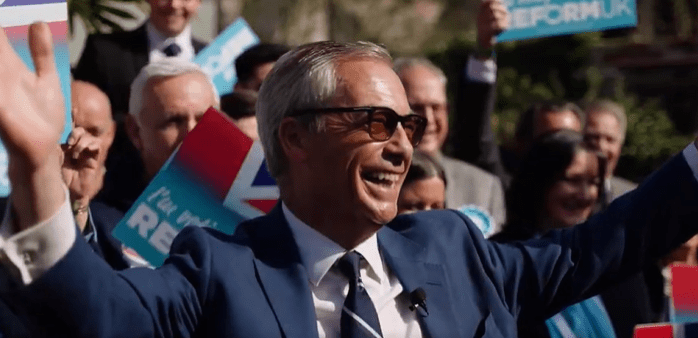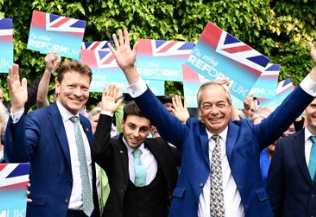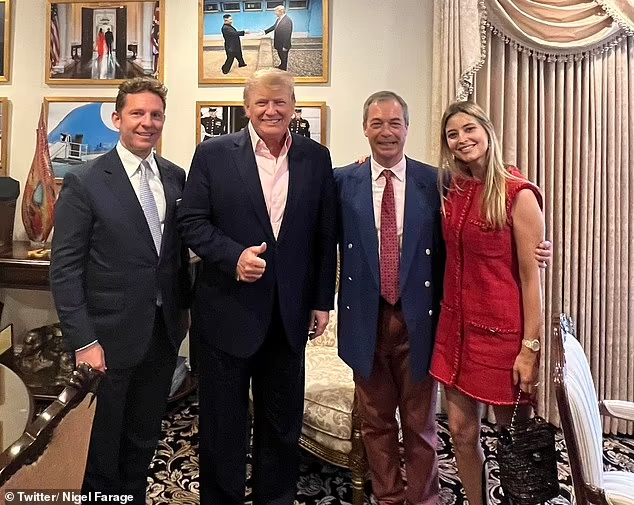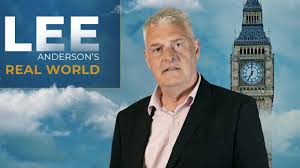Reform UK had stunning successes in last month’s council elections, out-polling the established parties, winning 10 councils outright and being in minority control of three more, confirming that its opinion poll lead over the major parties is no fluke.
It has established itself as a serious electoral entity, and it is clear it can pose previously unseen challenges for political power.
However, while it has a substantial voter base, albeit not evenly spread across the UK, it is following in the tracks of Nigel Farage and his previous two parties, UKIP and the Brexit Party, both of which collapsed, leaving a loyal group of voters looking to Farage for leadership.
Private company
Whether it has the necessary elements to establish long-term successful party – a cadre of experienced political activists who can carry out manifesto pledges, and the money to campaign effectively – remains to be seen. Current data is pointing in a variety of directions.
It is well known that Reform was initially a private company owned by Farage and a few close associates. It is still essentially owned by Farage, jointly with Yusuf, but is now presenting as a more traditional party with a membership base, though how this operates is obscure.
Its membership is expanding which gives it an important income stream, and may be overtaking Labour and the Conservatives in this area.
But how do other assets operate? How effectively can it campaign? Financial data recently provided by the Electoral Commission suggests it is an organisation in transition.
Membership party
According to the Open Democracy web site, Reform has received £4.8 million from wealthy donors up to 1 April this year. Some have links to fossil fuels, the financial service industry and tax havens.
The Electoral Commission only requires donations in excess of 11,180 in a year to be declared, so this total may be somewhat underestimated.
When it launched in 2023 Reform was the old Brexit Party but run as a private company, owned by Farage. Although still effectively owned by Farage and Yusuf, it now presents as a membership party, and is recruiting members who contribute a stream of small amounts, but the main funding is still given by people at the top of the Party.
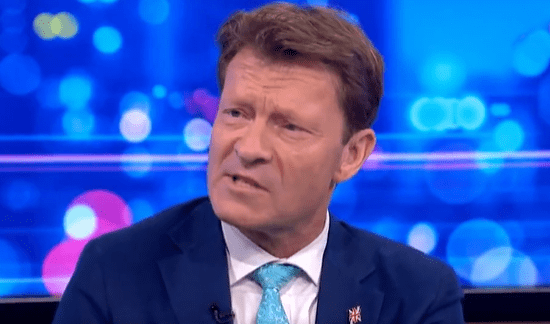
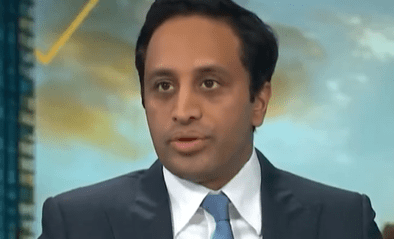
The biggest donor is Richard Tice, deputy leader and now MP, who has put over a million pounds into the coffers.
Zia Yusuf, formerly Chair who resigned then returned as head of the DOGE body aiming to cut council spending, has given £260,000.
Holly Vukadinovic, better known as Holly Valance, has given at least £50,000, and is married to party treasurer Nick Candy.
An even more notable donor is Fiona Cottrell whose son George is seen as an unofficial aide to Farage. She is a socialite who once dated the King and has given £750,000.
Her son, who has a conviction for fraud in the US, has not donated to Reform but has paid for some foreign visits estimated at £25,000 a trip.
Other substantial donors include a think tank run by climate change-denying Terence Mordaunt, hedge fund boss David Lilley, entrepreneur Bassim Haidar, and Jeremy Hosking, founder of the asset management firm, Hosking Partners, who has also been funding Laurence Fox’s Reclaim Party,
Evidence on who has given what is sparse as the rules of the Electoral Commission only require the name of a donor and the sum which has been donated, but there is one name so far missing – that of Elon Musk.
World’s richest man
The world’s richest man promised $100 million and was pictured with Nick Candy and Nigel Farage at Donald Trump’s Mar-a-Lago base in Florida, but then decided Farage was not good enough to lead Reform and the money did not arrive.
Curiously, Labour has not carried out its manifesto pledge to ban political donations from abroad; these are currently legal if the donor owns a company in the UK, which Musk does.
Another dubious source of money is donations from GB News, the right-wing TV company which has given lavish sums to right-wing politicians to appear on the channel.
To date this totals some £490,000 – mostly to Farage, though Lee Anderson is paid £100,000 per year to host a talk show.
That there are few limitations on GB News, effectively a propaganda channel, helping finance a political party is another major problem in regulating the money going to Reform UK
The information Open Democracy used primarily came from the Electoral Commission, whose latest report only deals with the first quarter of this year.
Ambitious plans
In the first quarter, the Conservative Party still did better than Reform, which only took £1.5 million. It had received £3m in the whole of 2024. The Tories took £3.3 million in the first quarter, and Labour took 2.3 million.
But this was before the May council elections when Reform’s successes might be expected to draw in more big donations, probably at the expense of the Conservatives.
So the data for the second quarter of 2025 when it is published will be significant. Reform may be on course to finance its ambitious expansion plans and mount a serious threat to the major parties.
